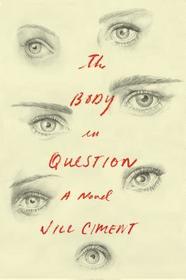Search -
The Body in Question: A Novel
The Body in Question A Novel
Author:
From the author of Heroic Measures ("Brave, generous, nearly perfect"--L.A. Times), Act of God, and (with Amy Hempel), The Hand That Feeds You ("An unnerving, elegant page-turner"--Vanity Fair), a spare, masterful novel about a shocking murder trial, a sequestered jury, and an affair between two of the jurors--the woman, in free fall in her life... more »
Author:
From the author of Heroic Measures ("Brave, generous, nearly perfect"--L.A. Times), Act of God, and (with Amy Hempel), The Hand That Feeds You ("An unnerving, elegant page-turner"--Vanity Fair), a spare, masterful novel about a shocking murder trial, a sequestered jury, and an affair between two of the jurors--the woman, in free fall in her life... more »
ISBN-13: 9781524747985
ISBN-10: 152474798X
Publication Date: 6/11/2019
Pages: 192
Rating: 2
ISBN-10: 152474798X
Publication Date: 6/11/2019
Pages: 192
Rating: 2
3.8 stars, based on 2 ratings
Publisher: Pantheon
Book Type: Hardcover
Other Versions: Paperback
Members Wishing: 17
Reviews: Amazon | Write a Review
Book Type: Hardcover
Other Versions: Paperback
Members Wishing: 17
Reviews: Amazon | Write a Review
Genres:
- Literature & Fiction >> World Literature >> United States
- Literature & Fiction >> General >> Literary
- Mystery, Thriller & Suspense >> Thrillers & Suspense >> Legal
- Romance >> Contemporary




